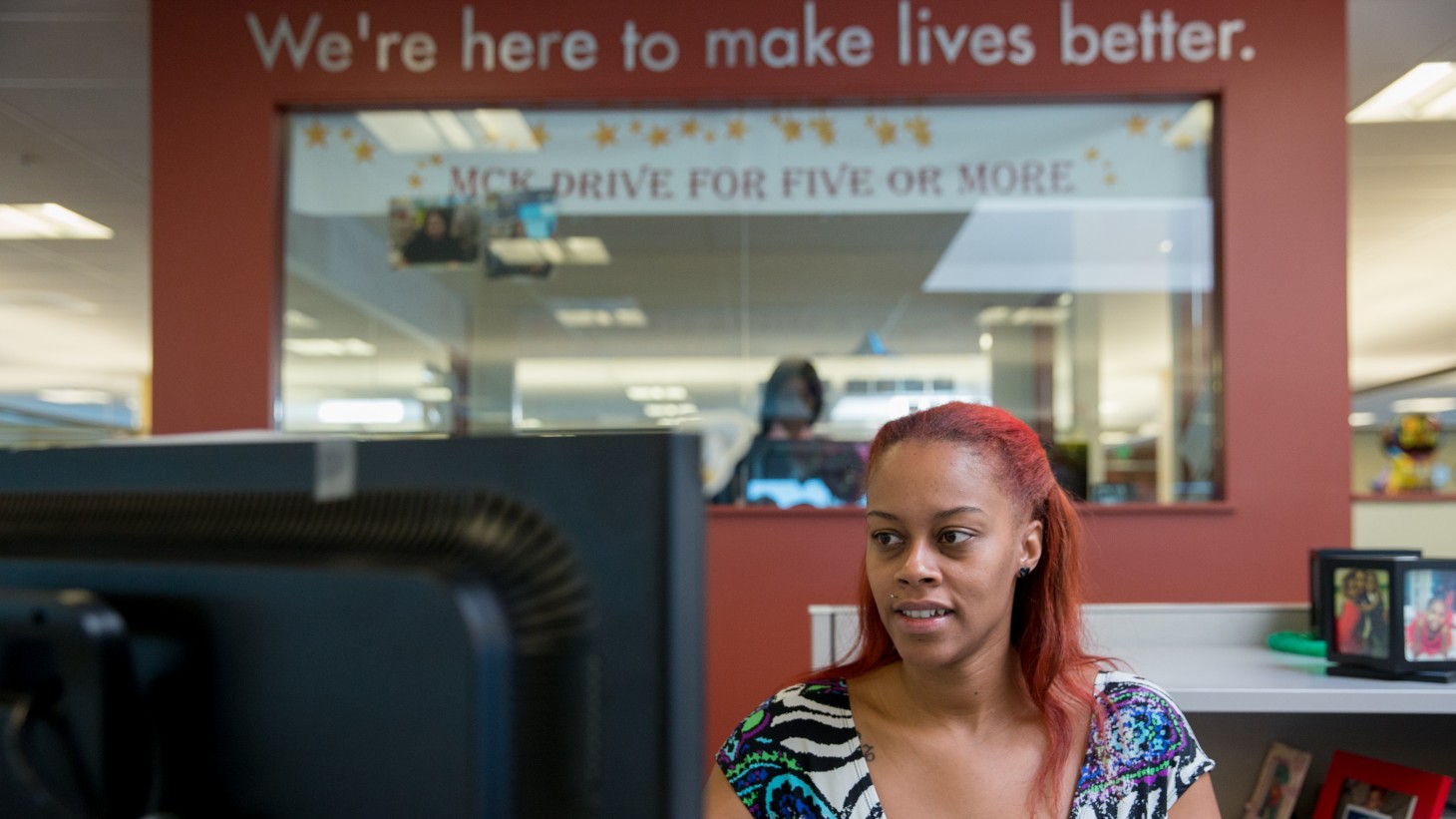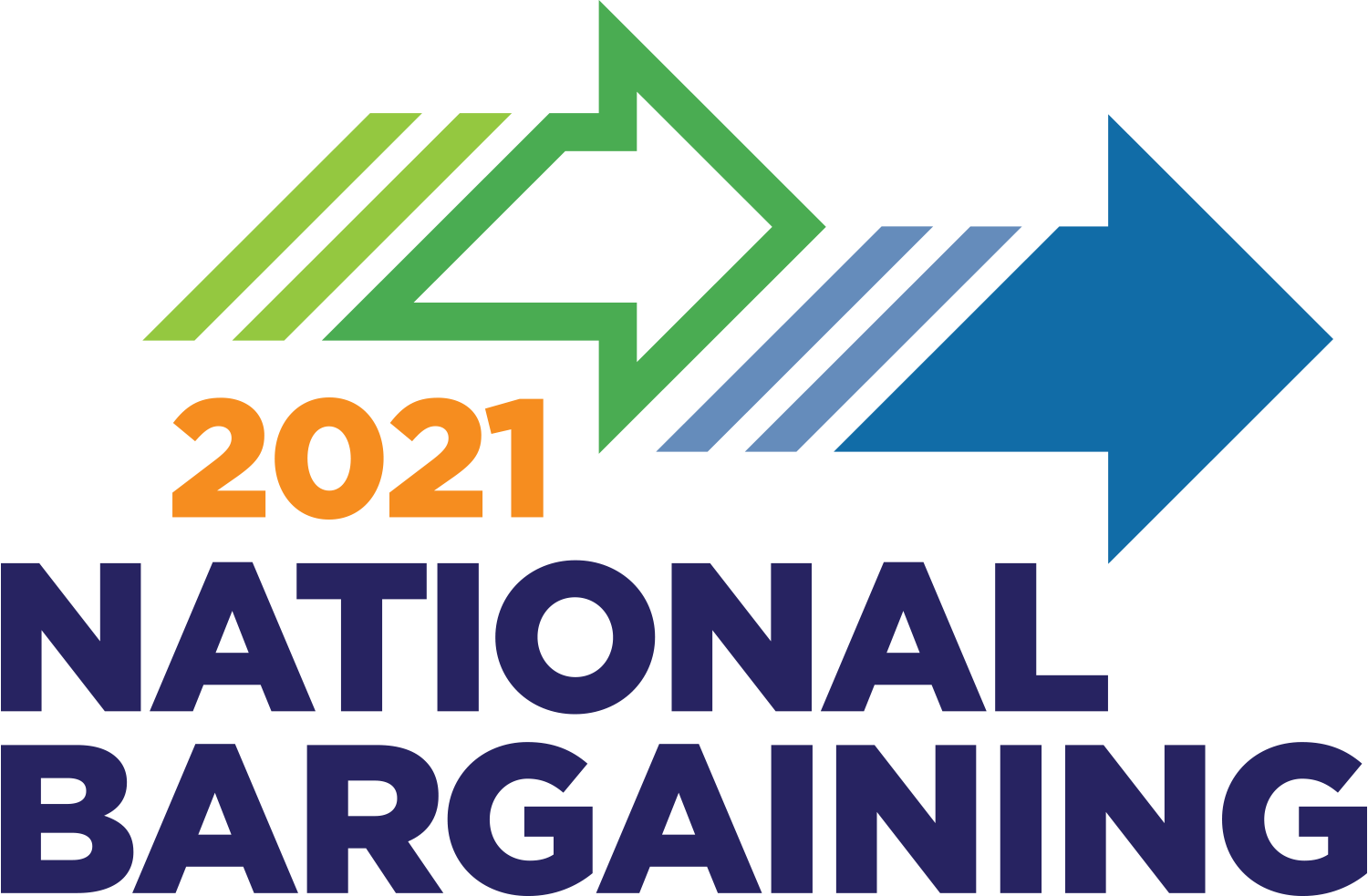Hank Spring 2016
See the whole issueDancing the Stress Away

Deashimikia Williams, a member of OPEIU Local 2, is a customer service representative in Maryland.
Call centers typically breed burnout—but KP’s teams are finding ways to be the exception to the rule
At 8 a.m. every workday, an alarm sounds at the Member Services Call Center in Denver. Instantly, Olivia Johnson and her entire unit-based team of customer service representatives to leap out of their seats.
And dance.
The dance break tradition started when one of Johnson’s co-workers set a regular medication alarm that plays music.
“He started dancing when his alarm went off, then another person started dancing with him. Now it’s all of us dancing every morning,” says Johnson, a member of SEIU Local 105. “Afterwards we clap and tell each other it’s going to be a good day.”
Shaking their groove thing, having regular potlucks and sharing information that might make work easier for others are ways Johnson’s team combats potential stress at work. Constant stress can result in faster breathing and an increased heart rate, which the American Heart Association says can lead to physical pain, depression and unhealthy behaviors to compensate.
The members of Johnson’s UBT also alternate work assignments, so that representatives aren’t doing the same thing every week. One week, half of the team fields the calls from Kaiser Permanente members, while the other half answers questions from all of Colorado’s customer service representatives via SameTime chat. The next week, they switch. The variety helps keep the demands of the job manageable.
Stress comes with the job
Terrence J. Cooper, who manages the Maple Lawn Call Center in Fulton, Maryland, says one reason working in a call center can be stressful is, simply, the nature of the work.
“We take complaints here,” says Cooper, who has been at Kaiser Permanente since 2006. “Complaints alone can be stressful.”
Cooper, who manages 20 people, tries to keep his team upbeat by injecting humor into his UBT’s daily huddles and team meetings. The team also host potlucks and does team-building activities outside of work, such as bowling.
“This allows us to catch up as a team,” Cooper says. “We talk about the weekend or the kids. It gives everyone an opportunity to take their minds off that last call.”
Cooper also serves as the local co-lead for the Kaiser Permanente wellness program “Live Well, Be Well” and tries to promote a healthy work environment to reduce stress. Frequently, fitness video games, board games or music are available in the break room to help folks “de-stress,” he says. “We try to lighten the mood.”
There’s a serious side to adding fun and festivities to the job: A study in the 2006 Ivey Business Journal Online found that workers who feel empowered and engaged—one of the outcomes of the light-hearted endeavors—are more productive and have fewer safety incidents.
Giving people a say
Another key element to reducing stress is giving people the ability to make more decisions at work, says Deashimikia Williams, a customer service representative in Maryland and member of OPEIU Local 2. Williams also serves as her UBT’s union co-lead and is a member of the national call center “Super UBT,” whose membership crosses regional boundaries.
Williams says empowering workers and improving their work processes can have a positive impact on stress at work. Making customer service representatives, CSRs, aware of what they can do to resolve a member’s issue also reduces frustration, says Williams, whose role on the Super UBT includes exploring different improvements.
“We look at the issues CSRs and managers experience on the floor. If we streamline a process, it may not be as stressful,” Williams says. “If we can let them know what can be done by each department and who can help resolve a member’s problem, it reduces frustration.”
